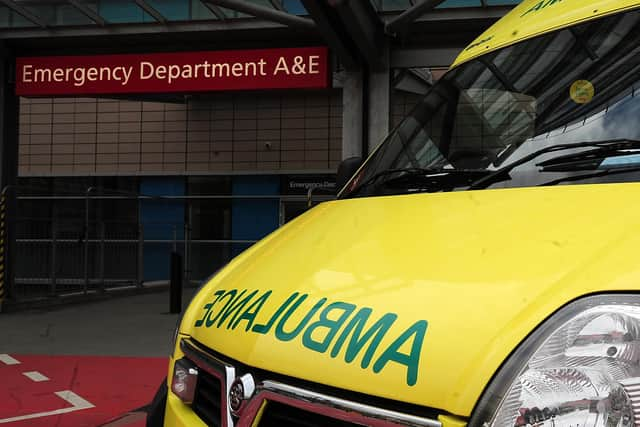Royal College warns of health services in Northern Ireland ‘on verge of collapse’
and live on Freeview channel 276
Dr Paul Kerr was commenting after the latest Department of Health figures showed that the number of people waiting more than 12 in emergency departments rose from 3,487 to 8,585 last year.
Dr Kerr, the vice-president of the Royal College of Emergency Medicine Northern Ireland, said the emergency admissions process “is in crisis”.
Advertisement
Hide AdAdvertisement
Hide AdThe new figures also show that in the last quarter – from January to March 2022 – only 47.3% of attendances at A&E services were seen and resulted in a subsequent admission, transfer or discharge within for hours.


That was described by the Royal College as “the worst Quarterly performance on record”.
Dr Kerr said: “The emergency care system is continuing to deteriorate, and the emergency admissions process is in crisis. Emergency Departments and ambulance services are overwhelmed, and this is leading to a patient safety crisis.
“Patients face long waits for an ambulance, long waits outside an Emergency Department, long waits in an Emergency Department. Patients in critical condition are not being seen in a timely and effective way. It is an appalling state of affairs.”
Advertisement
Hide AdAdvertisement
Hide AdDr Kerr said the situation is “the worst it has ever been,” and added: “We commend staff for their hard work and resilience during this incredibly tough time. All emergency medicine staff are working tirelessly to keep patients safe and continue to deliver the best quality care they can. But the current circumstances and challenges mean Emergency Departments will inevitably struggle to provide optimal care.
“There are widespread staffing shortages throughout the health system, and existing staff are burnt out, exhausted, and facing moral injury and distress daily – leading to some considering early retirement or quitting the profession.”
Dr Kerr urged the Stormont parties to form an Executive immediately to “mitigate the crisis and take meaningful action” to improve the standard of care and keep patients safe.
He went on to say: “Good social care underpins an effective health service, it can help free up beds, prevent recurring trips to the Emergency Department, and ensure timely discharge. It is critical that the crisis in social care is addressed as part of any plan to tackle the...crisis.”